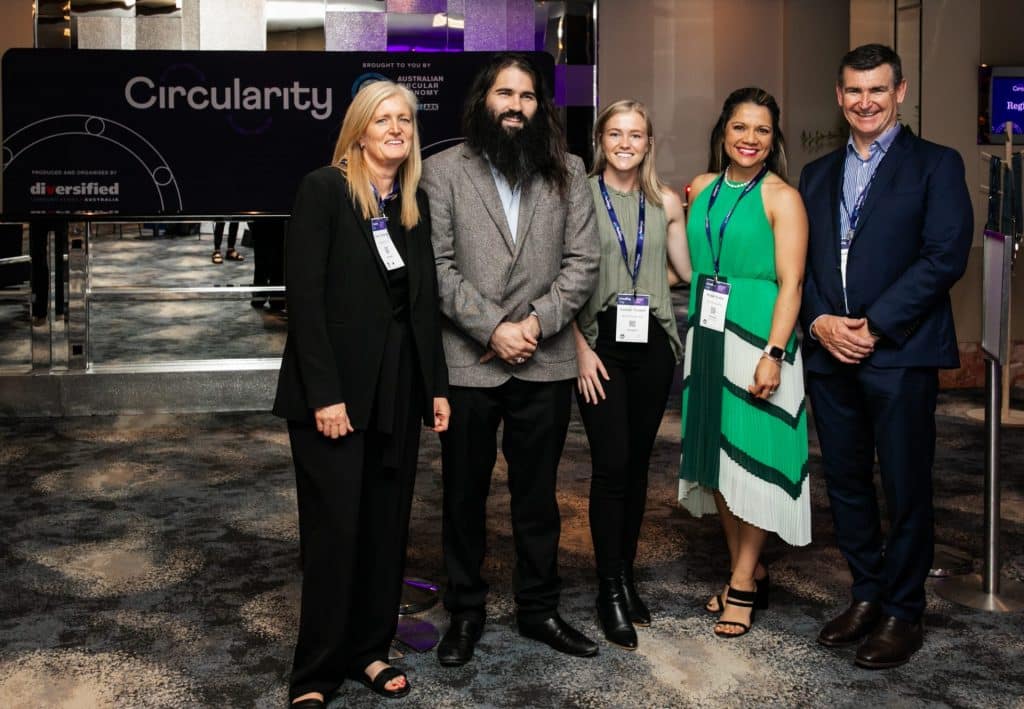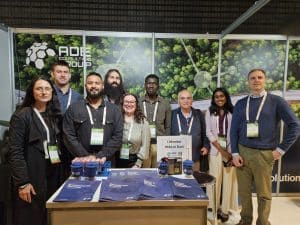Dr. Matthew Askeland, Victorian Environmental Lead, recently addressed two important environmental conferences in Melbourne: Waste Expo 2023 and Circularity 2023. Both events closely align with ADE’s core business, focussing on sustainability through innovation in waste management and resource recovery through the design of circular systems to replace traditional landfill practices.
Waste Expo covered a diverse range of topics, ranging from composting and soil management to plastic and e-waste, with messaging aimed at advancing best practices in waste management to contribute positively to both the environment and the community. As the largest gathering of waste management and resource recovery professionals in the country, the expo catalysed transformative discussions on material use, effective recovery, and waste reduction strategies.
Key themes from the conference included addressing contamination of organic waste streams with physical contaminants, such as plastic, brickwork, and asbestos, as a prerequisite before tackling chemical contamination. The ‘PFAS Gazette’ in Victoria emerged as a potential driver for directing materials to landfills. Moreover, there was a call to reassess how we categorise waste, opening up opportunities for increased reuse, and integrating major projects with resource recovery themes to enhance sustainability across the board.
This year’s Circularity conference looked more deeply into circular principles, noting that business leaders in Australia frequently recognise the importance of transitioning away from the conventional take-make-use-dispose model. The conference also expressed a need for greater understanding of circular practices and actionable strategies to achieve positive environment and client outcomes.
Key themes from Circularity 2023 emphasised the necessity of support and engagement from all parts of the material value chain for successful development of circular economies. The concept of spiral economies, allowing for limited reuse but ultimately devaluing materials, came under scrutiny. Additionally, it was highlighted that our tax and financial systems are poorly aligned with circular economy principles, particularly in assessing the value of assets and having a linear outlook on a product’s lifespan and embodied value.
A consistent message emerged from both conferences: Australia is committed to building circular economies and responsibly managing available resources. However, a sobering note was struck by the recent paper by Johan Rockstrom et al, published on 31 May 2023, and titled ‘Safe and just Earth system boundaries’. The paper underscored the critical issue of the vast array of chemical compounds released into the environment, posing unknown risks.
ADE played a crucial role at both conferences, being one of only two companies discussing chemical contamination and its barriers to circular economies. The risks these contaminants pose to human health and the environment were duly highlighted. Specifically, we were able to advance distinct knowledge on managing contaminants in resource recovery and circular economy operations, including measurement and management. This significant theme will continue to play a key role in discussions over the next few years.
While our team is already deeply engaged in this space, ADE anticipates an increasing role as a custodian of resources, considering the potential impacts on people and environments if not managed properly. ADE remains committed to generating value for clients and achieving better environmental outcomes by employing common-sense and practical approaches, coupled with continuous innovation.






